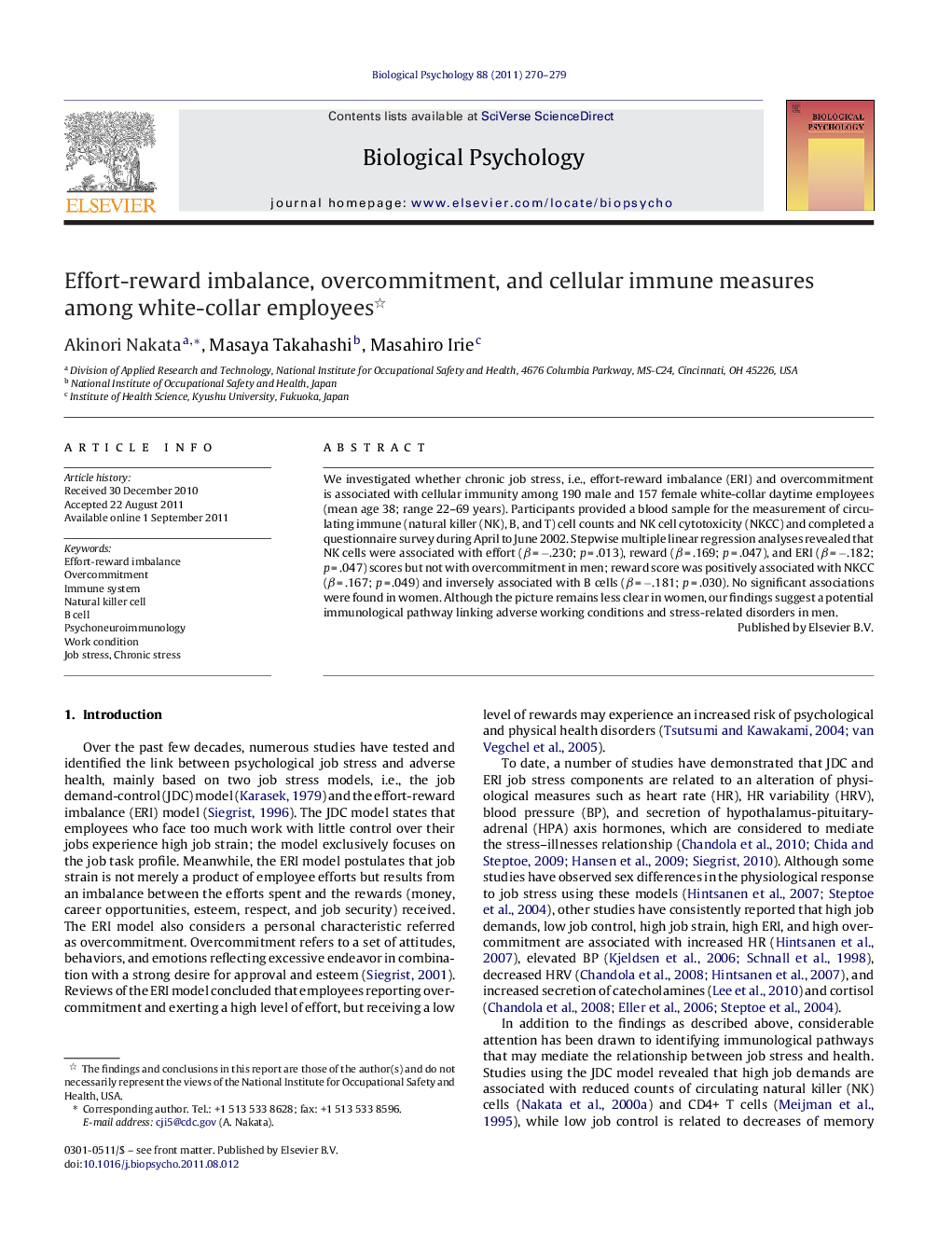| کد مقاله | کد نشریه | سال انتشار | مقاله انگلیسی | نسخه تمام متن |
|---|---|---|---|---|
| 921129 | 1473880 | 2011 | 10 صفحه PDF | دانلود رایگان |

We investigated whether chronic job stress, i.e., effort-reward imbalance (ERI) and overcommitment is associated with cellular immunity among 190 male and 157 female white-collar daytime employees (mean age 38; range 22–69 years). Participants provided a blood sample for the measurement of circulating immune (natural killer (NK), B, and T) cell counts and NK cell cytotoxicity (NKCC) and completed a questionnaire survey during April to June 2002. Stepwise multiple linear regression analyses revealed that NK cells were associated with effort (β = −.230; p = .013), reward (β = .169; p = .047), and ERI (β = −.182; p = .047) scores but not with overcommitment in men; reward score was positively associated with NKCC (β = .167; p = .049) and inversely associated with B cells (β = −.181; p = .030). No significant associations were found in women. Although the picture remains less clear in women, our findings suggest a potential immunological pathway linking adverse working conditions and stress-related disorders in men.
► Effort-reward imbalance model was associated with reduced NK cell function in men.
► Reward subscales were major contributors reducing NK cell immune response in men.
► Overcommitment was only weakly related to NK cell cytotoxicity in men.
► Overall, ERI model was related to cellular immune markers in men but not in women.
Journal: Biological Psychology - Volume 88, Issues 2–3, December 2011, Pages 270–279